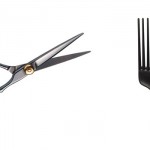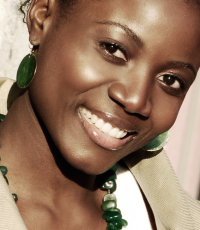On March 20, 2010, Dr. Argie Allen, a relationship and family therapist hosted an empowerment seminar in Philadelphia entitled, “Dare to be Lovely.” The objective of the workshop was to help each attendant reclaim the authentic beauty within her by tapping into the essence of how powerful she truly is as a woman. This authentic beauty and the goal to connect with her epitomize Obaasema. Because of this, Obaasema editor-in-chief, L. Abena Annan, followed up with Dr. Allen to delve into some questions we thought you might want answers to.
L.A.A.: At the seminar, you talked about women reclaiming themselves. What do you say about the woman who thinks it’s selfish to have a “me” time with herself?
A.A: What I will say is that we have been indoctrinated to believe as women that we have to be to give out all the time. We’re the matriarchs, we’re the nurturers, we’re the caretakers and often times we’ve gotten a mixed message that in order to honor our families, our loved ones, our friends, that this is the best way or is the only way. And I will say it is neither. It is not the best or the only way and in order to really give your best to others you’ve got to first preserve you. So I don’t call it being selfish. I will tell women that it should be called ‘self-preservation.’ It’s sort of taking the word ‘self,’ the root word, and then putting another tag on it so that it’s not a negative connotation but something that’s positive that not only feeds the person, but it has the potential to feed others, because you’re preserved in a healthy way if you’re taking care of you, maintaining yourself first. Not just with finances but paying yourself with attention and nurture, and love and empathy, and time and passion. Then you’re able to distribute the residual that you have to others in a much healthier way. Versus what we think, which is the opposite way, that if we’re being outwardly caring to everyone else, then that’s the staple of what it means to be a woman, to care-take. So we believe that. And yet what really is going on is that we’re giving the least of us, not the best of us. Because we’re so spread out and it doesn’t really honor that which we were designed for.
L.A.A: Hmm there’s another side to this. What do you say to the woman who is a believer and rationalizes by saying, “Well, Christ was outwardly focused; he cared for people and he was all about people.” How does she reconcile the side of her that wants to emulate this type of giving and not be so self-absorbed and the side that needs to take care of herself?
A.A.: It’s a bit of a juggling act and I do think that with those persons who are believers who would look at some biblical principles that God has set for us, those persons will say “ok well Jesus says we’re supposed to go out, we’re supposed to give to people, we’re supposed to care about the least of us because he said “to give to the least of us is to give to me.” And so it’s one paradigm. But I also look at the fact that Jesus also went out to be by himself and to meditate and to talk to God and to really regroup. He would not have been able to be amongst the people in the way that he was had he not gone into his place of solitude and really restore himself. So that’s how I reconcile that.
L.A.A: At the seminar you talked about finding ourselves. Will you say it may be impossible to find ourselves without finding that authentic self or will you say it is the same thing? Is finding yourself the same as finding your authentic self? How do you define both?
A.A.: Well, yeah, I will say that it’s all the same, although the reality of it is that one could potentially tell themselves that they are searching for themselves and not really go deep enough to explore that authentic being that dwells within them. And so it can be one in the same or it can be separate and apart where we’re sort of saying, “Yeah, this is who I am.” So an example might be, “I just tell people how it really is and people say I’m mean but this is just who I am, they’re just gonna have to accept it.” And so I say this to myself, “Is it who you are or who the world has made you?” Because then it becomes a question of nature versus nurture. And so throughout the experiences that you’ve had, has this been what has emerged? The person who’s like a turtle in some ways. They’re soft and passionate on the inside but have this hard shell on the outside that doesn’t really allow the world to really see them. I think we come into this world as intimate, loving, passionate and compassionate human beings and then the world shifts us to some place outside of the core of who we are. So finding that authentic self is almost like circling back around and reclaiming that which we were called here to do and to be.
L.A.A.: How would you say a person can go about finding that authentic self or getting in touch with that authentic self?
A.A.: I think a number of different ways, there’s probably no cookie cutter way because we’re all unique individual beings. But I do think that prayer, if you’re a spiritual person, being able to connect with that which is outside of the flesh and that which is really at the core. So that we’re praying for discernment, we’re praying for guidance, we’re praying for God to lead us or direct us to that very sacred place, that authentic self that was designed to be here in the first place and that which sort of in some ways the world and the messages and the ways in which man has created movement away from that, that allows us to come back to. So I would suggest starting with prayer and now this is the hard part, being still enough and obedient enough to really hear the voice of God. And for those persons who may be non-believers to hear whatever voice they feel is connected to their spirituality, because we’re all spiritual beings, in order to lead you to that very special and unique core.
L.A.A.: Speaking of voices and leading. What do you think is the best way to approach things when you feel that you have a calling to go in a certain direction, in any area of your life, but receive opposition from outside sources?
A.A.: I would say you need to be very prayerful and ask God to lead you to the persons that will honor this information. And not just honor it by agreeing, maybe honoring by being passionate or giving you other ways to think about it or being interested in what you’re doing. And then also recognize your audience. Just because you have friends or family who can’t be available to you in the ways that you would like them to be, it doesn’t mean that they aren’t caring for you. Sometimes it just means they’re not able to be there for you in that way and so knowing your audience then allows you to manage your information in a healthy way. Because I do not believe that all information is for everybody. I do not believe that all dreams are to be shared with everyone. And I think and believe that there are only a few people in our core circle that are meant to walk a part of development of our dreams and thoughts and ideas and our purpose.
L.A.A.: Back to reclaiming our authentic selves. What if a woman identifies a weakness in her life and desires to work on it but doesn’t know where or how to even start, what advice can you give to her?
A.A.: Well, I believe the start to working on an area that you’re uncomfortable with is around forgiveness. Because a lot of times I think that we can be our own worst enemy and quite frankly I don’t think that we need anybody else to beat us up, but at times we as females or as women, we finish it ourselves in terms of those internal haters. So I’m usually sharing with women to be more concerned about the internal haters than your external haters. I learned a long time ago, probably back in my twenties that it wasn’t always a healthy thing to do, to be always at the submission of what others wanted of me. For example, I am a communicator. I had a relationship where the person thought I talked too much. So in my younger days, I decided that, “Well, he thought I talk too much so I’m going to talk less.” And what I found was that that was eating away at my spirit because I was doing something to please someone else that was really antithetical to who I am. Now that’s not to say people can’t offer good feedback and you can’t work on modifying it if you feel like maybe they have something there and they’re presenting it in a way that’s authentically helpful to you. But to begin to make changes based on someone else’s subjective view about us without really considering, ‘Is it congruent with God’s views and how he’s designed us?’ I think it does us a disservice. So embracing the gifts and things that you like and evaluating the things that you’re not happy with and then begin to do the work of investing in yourself by creating action steps that will move you closer to whatever that goal is.
L.A.A.: So this whole idea of an ideal woman, do you believe that there’s an ideal woman within every woman? And if so, how do we help ourselves to see that there’s an ideal woman within us?
A.A.: I do believe that there’s an ideal woman within every woman. I do think that it’s kind of like the sun is very bright on a crisp day and then there are clouds that are created in the atmosphere because of all these chemicals that happen. And on a crisp day when you wake up, you might not see that sun but the sun is still there. And then as days go on, the clouds will sometimes burn away and on that day, you might have thought “Well, I thought they said it was going to be sunny but I don’t see any sun.” Because it’s hiding. But once those clouds burn away you realize that that brilliant sun was there all along, it didn’t go anywhere. There were just chemicals in the atmosphere that covered up this sun and gave the presentation that there wasn’t a sun there at all. So if we look at that as a metaphor for the ideal woman, this brilliant woman who has all these gifts to offer the world and was designed to come here to deposit those gifts, then we have to get to the core of that sun that’s been blocked by the clouds in the atmosphere. Clouds being a metaphor for messages from our culture, messages from the world, messages from people that we’re not who God says we are. If the ideal woman is this brilliant sun and the clouds are blocking it, then we have to then pay attention to what’s in the atmosphere that’s distancing us from our unique, ideal person.
L.A.A.: How much progress do you think women have made so far in reaching a place of self-awareness? Both the younger generation and older generation.
A.A.: I think we have a long way to go. There are times when I believe we have regressed and I think that it makes sense because years ago things were complex but more simple. There was more time to really think about things that really mattered to ourselves; we connected to the cornerstones of lives, like family. Family time around the dinner table, that’s almost extinct these days. But it allowed us to talk. There were no TVs, there were no video games, there was just radio. So people by the nature of the atmosphere and the environment that we lived in, were able to explore themselves in a different way. For instance, I’ve heard the older generation say, “We were poor but we weren’t poverty-stricken.” I call it going back to the basics in order to lead us to a place of self-awareness where people sat on the porch, they watched each other’s kids. There was truly a village globally and so people cared. We live in a different culture yet certainly we’ve got to take some of the space that we’re in now to make it adaptive to the culture that we live in. But I do think that there are some core values that should not have changed that we still can connect with that would allow us, I believe, to really become more self-aware. It goes back to what I was saying before. What messages are you listening to? Are you listening to messages that are not feeding your spirit? What does it mean to feed yourself healthy messages, words of affirmation? What does it mean for people to speak nice things to you and you speak nice things to yourself? We tend to take that for granted, but then that steers us farther away from being really aware of ourselves and what we do and why we do it and how we do it. In order to have self-awareness you also have to be aware of your environment, the persons you’re interacting with and aware of your history, which I think is really key.
L.A.A: What would you like to say to that young woman reading this who would like to connect with that ideal woman within her?
A.A.: I would love to say to the ideal woman to trust and have faith that she is there, that the ideal part of her dwells within her and that it is important for the next generation that she finds that woman. That ideal person that she was designed to express and to be. And just like that brilliant sun that can be hidden by the atmosphere of clouds, that she needs to not give up. Because too often what we see in our culture these days is the manifestation of giving up on the faith and the hope of that ideal person being inside. Know that you are a priority and to be a priority you must invest in yourself first. So preserve you by advocating for self-preservation and preserve by feeding yourself both internally and externally with those messages and those words and those actions that will speak life and not death.







